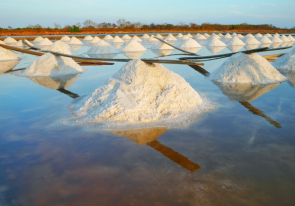Businesses wary of Red Sea conflict, impacts on export and import
The escalating conflict in the Red Sea has led to a surge in logistics costs for exporters in distributing goods, while importers have not yet seen significant impacts from the geopolitical situation in the Middle East.
Benny Soetrisno, the Chairman of the Indonesian Export Companies Association (GPEI), said the increase in logistics costs due to the conflict has risen significantly compared to costs before the Israel-Hamas war heated up. "It can increase up to 30-40 percent [production costs]," Benny said as Bisnis.com on Friday.
Several processing industries, including textiles and ready-made garments, furniture, electronics, automotive components, and derivative products of crude palm oil (CPO), are experiencing export pressures due to the intense conflict. This is evident in the sluggish export demand to Europe due to the high logistics transport costs that choose to avoid the Suez Canal route in the Sinai Peninsula, Egypt.
Logistics transport is reported to prefer circumnavigating Cape of Good Hope in South Africa, resulting in increased shipping costs and delivery times. "The effect will impact the increase in selling prices, and ultimately, there will be a reduction in production volume," Benny said.
On the other hand, Subandi, the Chairman of the National Association of Indonesian Importers (GINSI), conveyed that the impact of the Red Sea conflict on importers has not yet been significantly observed, citing that there are alternative countries to replace import needs.
He cited an example that fertilizer imports from Ukraine and Russia are not hampered because most of them have been replaced by domestic fertilizer production. "Including what President Joko Widodo said about a shortage of fertilizer is also not accurate, even though the quality is still below standards like NPK and KNO3," he concluded.
Tag
Already have an account? Sign In
-
Start reading
Freemium
-
Monthly Subscription
30% OFF$26.03
$37.19/MonthCancel anytime
This offer is open to all new subscribers!
Subscribe now -
Yearly Subscription
33% OFF$228.13
$340.5/YearCancel anytime
This offer is open to all new subscribers!
Subscribe now






